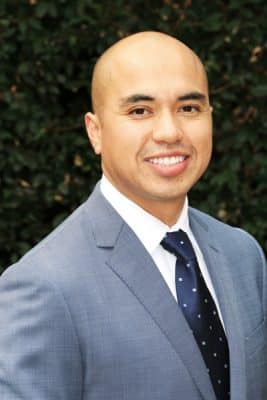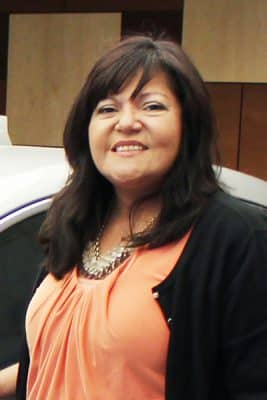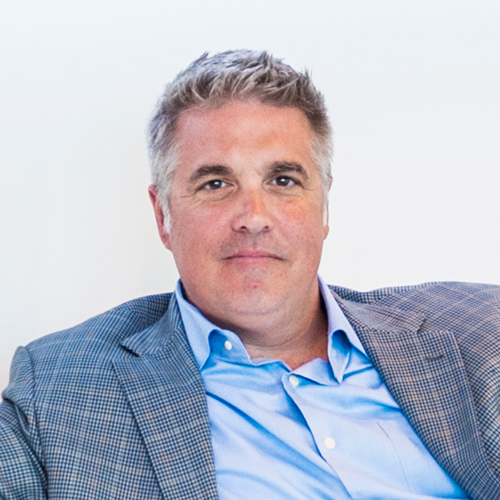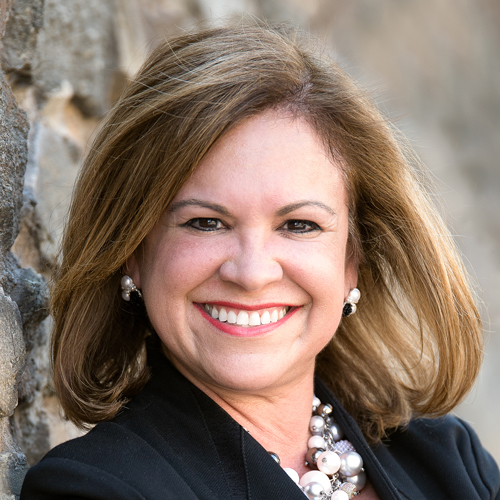The Hispanic Association on Corporate Responsibility is an advocacy organization like none other. Washington, DC-based HACR strives to reflect the collective voice of more than 46.6 million Hispanics, but more specifically, sixteen national Hispanic organizations in the United States and Puerto Rico.
By keeping its focus on the corporate social responsibility areas of employment, procurement, philanthropy, and governance, HACR serves Hispanic community-based groups through advocacy, education, public policy support, and resource development.
One of HACR’s longest-running programs is the Young Hispanic Corporate Achievers (YHCA). Created to recognize outstanding young Hispanics in corporate America, with the overarching goal of bringing more Hispanics to corporate boards, YHCA unites a new group of Hispanic professionals each year via an intensive, three-and-a-half day leadership conference.
Hispanic Executive caught up with two recent YHCA recipients—one whose work has him living overseas, and the other who is rising through the ranks in her hometown. The two update HE on their careers, as well as the role YHCA continues to play in their lives.

Angel Uruchima, Chevron Corp
Although he’s worked for the Chevron Corp. for more than a decade, Angel Uruchima still remembers the answer he gave, early in the initial job interviewing process, when asked what he was looking for in an employer: “I said I was looking for a company that had the tools available for anybody to use to develop themselves, and take their career to the next level,” he recalls.
“This has been true with Chevron,” Uruchima adds. “The tools have been available, not only to help me get my job done but for personal development as well.”
It was a job he was eager to start before he was even chosen for it. A native of Ecuador who moved to the United States at age eighteen, Uruchima earned his electrical engineering degree from University of Missouri–Rolla. He remembers traveling by helicopter to visit an offshore site during his interview at Chevron. He was excited enough about the travel possibilities alone—when the job offer was made, he accepted it on the spot. With a steady progression and enhancing his skills by working in a variety of facets, he moved toward more of the exploration and production work that set him on an international course—to Europe, Asia, and currently Australia.
Yet for all his career successes thus far, Uruchima finds himself giving a lot of thought and respect to the delicate balance between work and personal life. “While in Australia, I have learned to fully utilize the available work hours to get the job done. This is necessary because the culture in this part of the world places a higher priority on work/life balance, thus working outside office hours is not the norm. YHCA’s coaching to be more effective through improved communication and managing cultural differences has been a valuable lesson in this regard.”
When Chevron became involved in HACR’s YHCA program in 2014—and nominated Uruchima to participate the same year—it set him on an important course for both personal and professional self-discovery.
Uruchima emerged with specific goals designed to build his personal brand. More effective communication is a recurring theme; it starts with more phone calls and less e-mails, and progresses into the kind of strategic thinking that has him working harder to make the logistics work among international and multidisciplinary team members. As a result, those members have more opportunities to speak to each other directly, better achieving common goals.
Another important goal for Uruchima is building stronger relationships among those who work with him. This means improving listening skills and opening extended conversations about life outside of work. “It seems like a cultural thing,” he says. “You go to the US and all you talk about is work. By recognizing that I need people to engage with me on a more personal level, I have been able to improve my soft skills.”
“I saw it as a life-changing event, and I want to explore the full benefits of this program . . . and whatever else HACR has to offer.”
Learning to be a better listener, he discovered, is a challenge in itself. “For the first few weeks, I had to be more careful to allow others to finish, concentrating on what they were saying, rather than just waiting for my chance to interject,” he says.
He values his post-YHCA journey enough to make it worth the effort. In fact, Uruchima committed himself to staying involved with YHCA happenings for five years—through Chevron if possible but on his own if necessary. “I saw it as a life-changing event, and I want to explore the full benefits of this program . . . and whatever else HACR has to offer,” he says.

Diana Ortega, General Motors
Constantly fascinated by where things came from and why they existed, was Diana Ortega from an early age. Her interests initially manifested as a desire to become an archaeologist because of her passion for solving problems. However, by high school, engineering had grabbed her attention. The fact that she is from Detroit—calling the community known as “Mexicantown” home—took care of the rest.
“I was involved in a Saturday engineering exploration program with one of [GM’s] competitors,” says Ortega, who has been with General Motors since 1997. “They would open up their doors to some of their test facilities, and we’d do different projects with the engineers. It really sparked my interest.”
As did the fact that, in the early 1990s, she never worked with any female engineers—let alone any minority women. Rather than be discouraged, she saw great opportunities ahead. “I’m very competitive and action-oriented, so I thought [becoming an engineer] would definitely provide me with a solid career path,” she explains.
Three college internships later—one of which sent her to her mother’s homeland of Mexico—Ortega started in a rotational program in the manufacturing division of General Motors. Countless project launches later, she arrived at the role of quality launch manager of the 2017 Chevrolet Volt, where she has served since 2013. She delights in all that goes into the creation of a vehicle. “I’ve enjoyed the opportunity to work with all levels of the organization,” she says. “Having projects where chief engineers were in touch with me daily, and knew me by name . . . it’s something that really exposed me to unique career opportunities.”
Ortega describes her 2014 YHCA experience as “amazing,” noting that her 30 fellow participants continue to stay closely connected—and are extremely supportive—via social media. “We build upon each other,” she says. “If someone’s going through a career crisis or a big change in their personal life . . . it’s really like an extended family to me.”
“[The YHCA Program] put me in a spotlight to demonstrate the commitment that GM has made toward developing diverse talent . . . now, it’s about providing that opportunity to others.”
Through summits and panel discussions, she continues her involvement with YHCA in an official capacity.
“The YHCA program of HACR has really strengthened my leadership skills and ability to develop others,” Ortega says. “It put me in a spotlight to demonstrate the commitment that GM has made toward developing diverse talent . . . now, it’s about providing that opportunity to others.”
The Hispanic association on corporate responsibility (HACR) By the numbers
Strives to reflect the voices of more than 46.6 million Hispanics living in the US and Puerto Rico
Members work with more than 1,500 affiliate community-based organizations serving the Hispanic community including:
more than 450 institutions of higher learning
400 publications with combined circulation of more than 10 million
With 50 million consumers, the US Hispanic population represents 16% of the entire population

